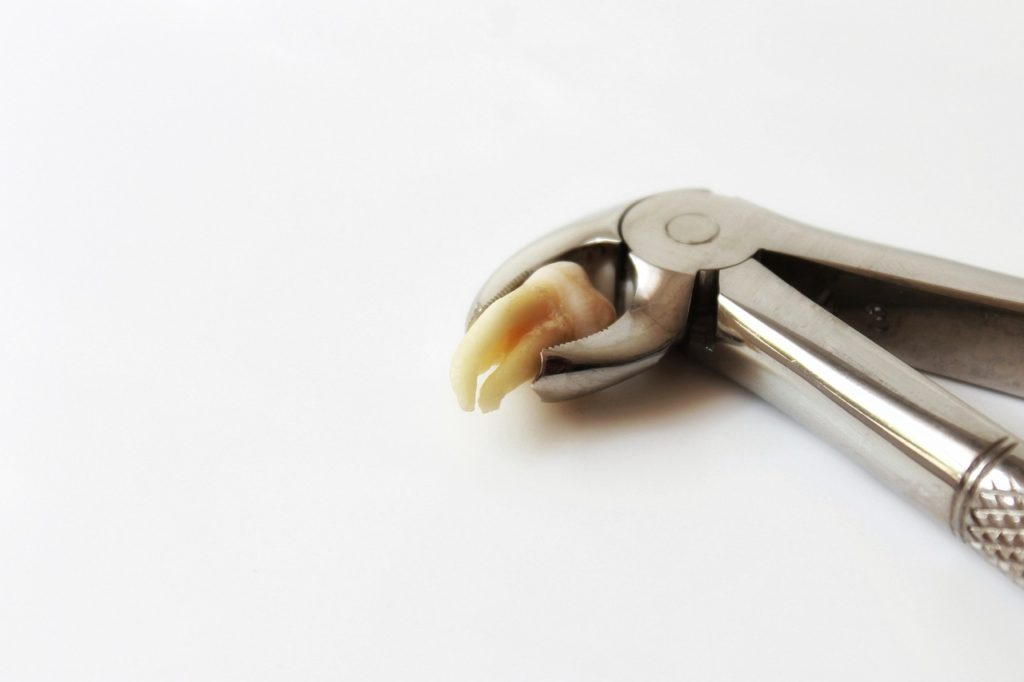An interesting article titled “Third molor extractions among Australian adults: findings from the 2013 National Dental Telephone Interview Survey,” written by Hanna et al. appears in the International Dental Journal (vol. 68, pp. 77-83, 2018). The article sought to answer several questions regarding wisdom teeth removal in Australians: whether: 1.) having dental insurance is associated with a higher number of wisdom teeth extractions; 2.) if receiving single versus multiple wisdom tooth extractions is associated with self-rated oral health in the short term; and 3.) if receiving wisdom teeth extractions for those aged 18 to 25 years is associated with fewer number of days absent from work/school because of dental problems than those older than 25 years. The reason the authors explored item (2) identified above was because they believed those who received multiple extractions in a short time window might suggest removal for preventative reasons and also to identify the benefit/risk of wisdom teeth removal. The reason the authors explored item (3) identified above is because other studies have suggested that complications increase in those over 25 years (see the wisdom teeth page on this website for more discussion of this issue and relevant studies).
In the study by Hanna et al., the authors used data from the 2013 National Dental Telephone Interview Survey (NDTIS), designed to be a random representation of residents of Australia, with data collected from June 2013 to March 2014. The authors only included data from those 18 years old and older. The telephone interview asked each person to give the number of dental extractions received over the prior 12 months and to say why the extractions were performed. Other data collected included asking how many days in the last 12 months each person missed work or school for more than half of the day due to dental problems. In addition age, gender, highest level of education, annual household income, whether or not they had dental insurance, and a self-rated oral health score from 1 being the worst to 5 being the best was collected. The authors performed an analysis and constructed generalized linear models on the 120 people from the larger data set who had indicated they had a wisdom tooth extraction in the prior 12 months.
The authors found that 63% of the people who had a wisdom tooth extracted in the prior 12 months were between 18 to 25 years old, with the rest being older than 26. The authors found that 56% of the people who had a wisdom tooth extracted in the prior 12 months were female with the rest male. The authors found that 73.9% of the people who had a wisdom tooth extracted in the prior 12 months had a tertiary qualification (education acheivement) with the rest not having obtained such qualification. The authors found that 58.3% of the people who had a wisdom tooth extracted in the prior 12 months had an annual income of $60,000 or greater with the rest less than this amount. The authors found that 47.4% of the people who had a wisdom tooth extracted in the prior 12 months had dental insurance with the rest not having any dental insurance. The authors found that 60.9% of the people who had a wisdom tooth extracted in the prior 12 months had received multiple extractions with the rest just having a single extraction. Through the use of their generalized linear models, the authors determined having dental insurance and having less education were associated with a higher number of wisdom teeth extractions after adjusting for gender and annual income. Further, through the use of their generalized linear models, it was found that each year increase in age was associated with less wisdom tooth surgeries. The authors determined that receiving single versus multiple wisdom tooth extractions was not associated with self-rated oral health in the short term after making adjustments for age, gender, education, annual income, and dental insurance. In addition, the authors determined having wisdom teeth surgery for those ages 18 to 25 years compared to those 26 and older was not statistically significantly associated with missing work or school when making similar adjustments as with the other models.

Based on their results, the authors feel that since having dental insurance was associated with a higher number of wisdom teeth extractions, those with dental insurance might be subjected to over-management. Thus the authors seem to suggest many of these wisdom teeth extractions among those insured were performed for preventative reasons. They also point out that there was no corresponding benefit on self-rated oral health in the short-term and thus this presents a potential moral hazard as they may be exposed to more risks than needed. Regarding their results from single versus multiple extractions the authors state:
“Single versus multiple third molar [wisdom teeth] extraction was found not to have a significant association with self-rated oral health in the short term. This adds to the ongoing argument regarding…prophylactic removal. These findings might suggest the need to provide…pre-consultation evidence-based resources and to investigate the association with third molar decision making and decision-outcomes.”
The authors believe their findings regarding no difference in days of school or work missed between those in the 18 to 25 age group and those in 26 and older age group suggest that additional randomized controlled trials are needed to further explore the effect of age on wisdom teeth removal. They make the assertion that the use of age as a justification for prophylactic wisdom teeth removal might be questionable. The authors do note that the small amount of responses used in their study may have difficulty in translating to conclusions about the entire Australian population. In addition the authors point out that there might be better measures to assess the recovery period after wisdom teeth extractions than just going off of days of work or school missed.
